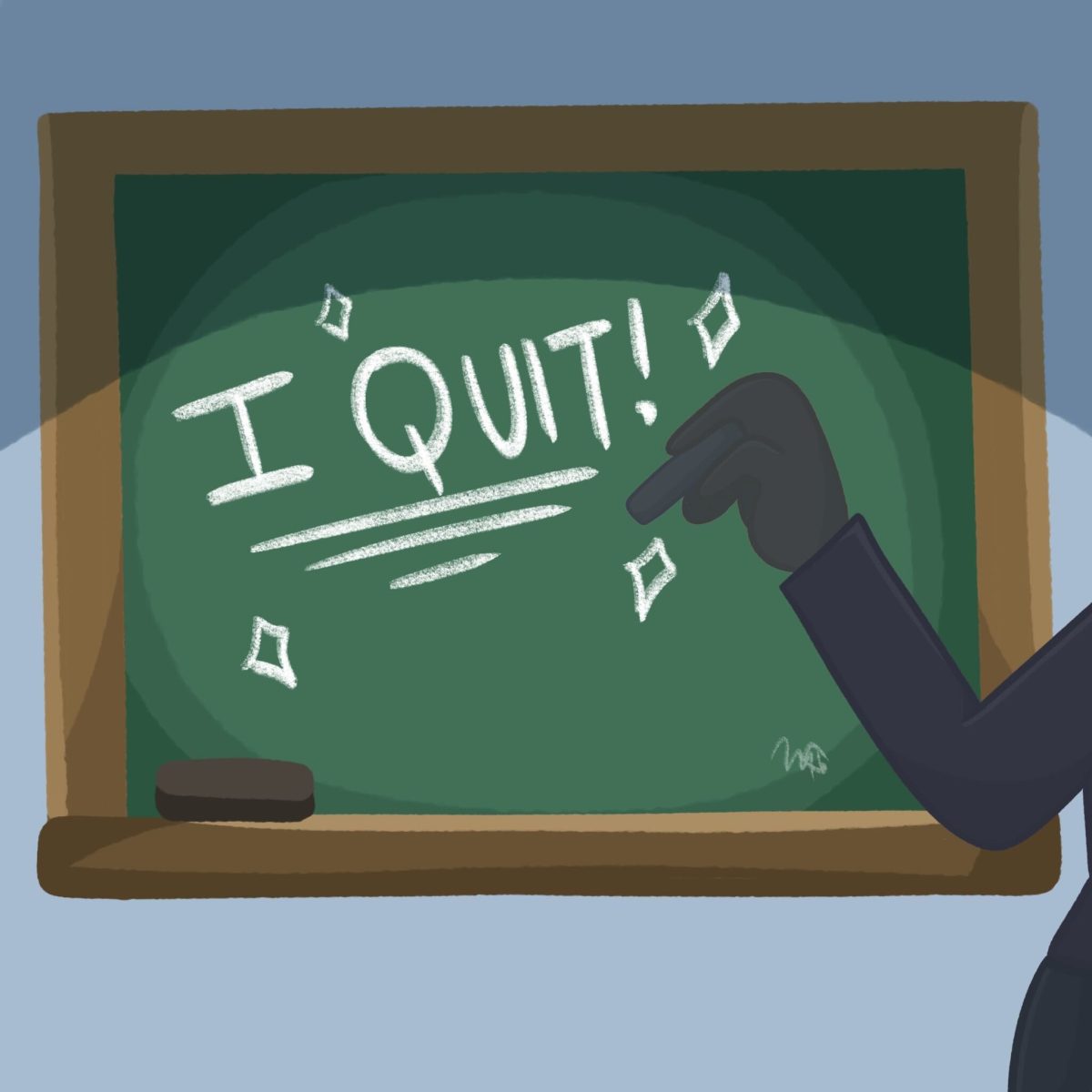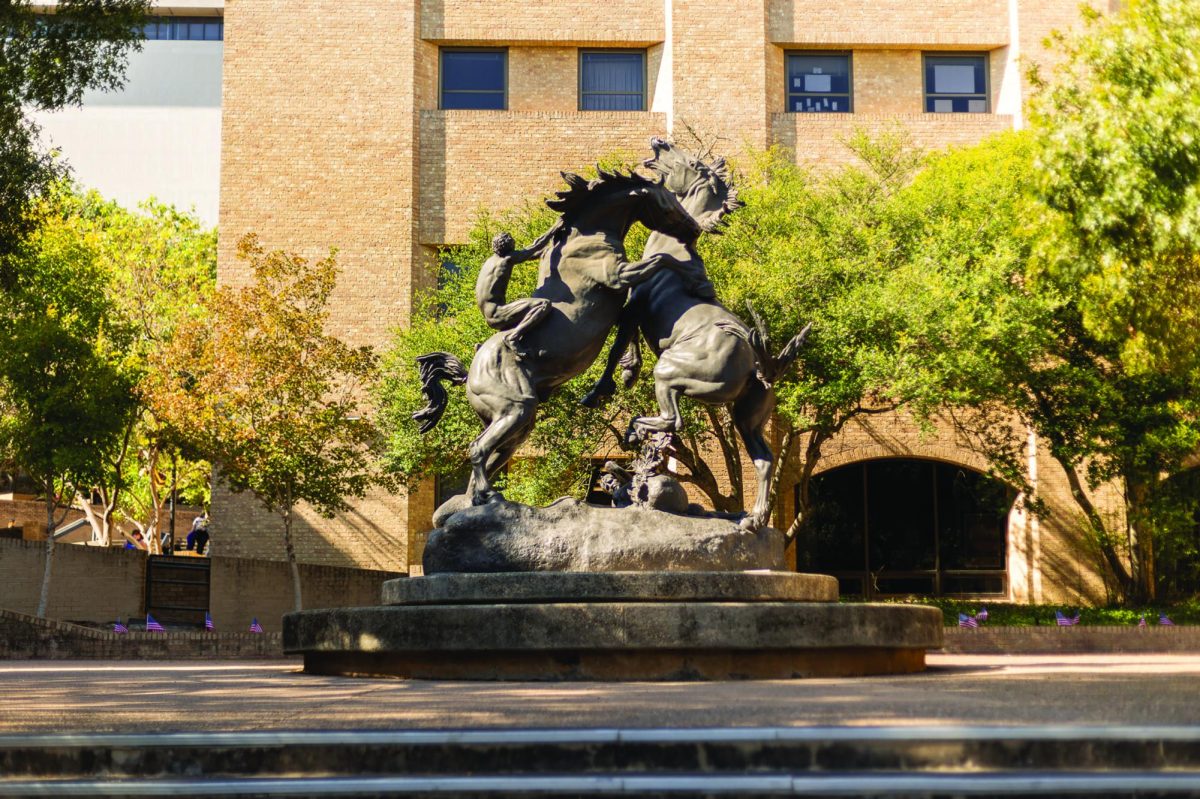On Monday, August 14, elementary and secondary schools across Texas returned to class. However, despite all the excitement of a new school year, many Texan school districts face a severe problem — they don’t have enough teachers.
Texas school districts report a severe shortage of personnel needed to run schools smoothly. Houston ISD has seen up to 900 teacher vacancies, and the crunch is so powerful that some rural Texas school districts have switched to four-day school weeks.
This is not a new issue. Texas school districts have experienced a 10% attrition rate since the 2011-2012 school year, and Texas has seen a 27% decrease in newly certified teachers since 2014. In light of the pandemic, economic turmoil and pressing political and cultural issues, these shortages have reached a boiling point in recent months.
Many are missing the issue. The teacher shortage results from decades of mistreatment of teachers and rising tensions over recent cultural clashes. If significant systemic change doesn’t begin, the lack of quality teachers may damage the American public education system beyond repair.
One of the most pressing issues is the low pay. It is no secret that teachers are not paid very well. The average compensation for Texas teachers in 2021-2022 was $58,887 annually; however, the costs of becoming a teacher often eclipse this salary. In addition, teachers require bachelor’s degrees, certifications and even master’s degrees to remain hirable.
The average cost of college annually in the United States is $35,331. Unfortunately, many teachers cover this expense with student loans that have become increasingly difficult to pay off over the years, especially with the rising cost of living. It has become such a pressing issue that Austin ISD proposed a bond for a housing assistance program for teachers.
It is worth noting that the average teacher does not go into the field expecting wealth and riches. Paige Spell, an education senior, decided that she wanted to be a kindergarten teacher at a job fair in seventh grade and has been working toward this goal since. While Spell is well aware of teachers’ low salaries, she is still very driven by the mission that initially drew her to teaching.
“I feel like I’m ready to teach the kids and set them up for a successful future of being a good human,” Spell said.
In other cases, passionate teachers with similar missions leave the field because they find it difficult to juggle their low salaries with the rising cost of living and student loan payments. According to a survey, when asked if they felt their pay was fair for their work, 51% of surveyed teachers responded strongly disagreed, and 23% of surveyed teachers responded slightly disagreed. In addition, teachers sometimes find themselves taking on additional jobs to make ends meet. One survey by the Teacher Survey Project found that a whopping 82% of surveyed teachers had currently or previously worked a second job to support themselves.
Teachers are often expected to dip into their paychecks to cover classroom costs. The average teacher is expected to spend $560 of their own money on their classroom, a 10% increase from previous years. Teachers often spend their own money due to insufficient financial support from school budgets. On average, elementary school teachers receive $11 per student from the school budget, but teachers spend an additional $33 per student out of pocket to ensure each student has enough supplies.
Another primary reason teachers are leaving the field in droves is that in recent years, teachers have been experiencing cripplingly low morale. A Gallup survey found that K-12 teachers were the most burned-out professionals in the country with 44% reporting feeling burned out “always” or “very often” while at work.
In addition to low pay and pressing social issues such as COVID-19 and school shootings, teachers cite problems such as poor workplace culture as a reason for low morale. This includes the lack of support, inability to contribute their opinions and expertise to decision making and teacher accountability practices such as evaluations that they perceive as unnecessary, subjective and invasive.
While most teachers entered the field because they desire to teach and support students, many find the environment too hostile and the pay too low to persevere. Among those who remain, many experience symptoms of depression, generalized anxiety disorder and record low morale levels.
Teachers with low morale often find it harder to complete their jobs to the highest of their abilities. Again, students will be affected; according to a survey, over 75% of surveyed secondary school students reported being less engaged in class if their teachers did not have good morale, which can increase behavioral issues. Increasing frustration among teachers creates a vicious cycle of lack of motivation on both ends.
One of the most significant current issues that teachers are dealing with is the ramifications of COVID-19 and its effect on the education system and children as a whole. In addition to the risks of contracting COVID-19 while on the job, teachers are often struggling with the transition in and out of remote learning and assisting students who have fallen behind during the pandemic. Moreover, many students are struggling to cope with the grief of lost loved ones, unfamiliarity with classroom settings, and other mental health issues, which results in behavioral issues, which also fall into the lap of teachers. Many schools have seen an increase in suspensions for behavioral problems.
Additionally, many teachers are on the front lines of America’s cultural conflict over school shootings and gun laws. The Uvalde school shooting, in particular, hit too close to home for many Texas teachers. Dr. Christine Crawford, director for the National Alliance on Mental Illness, described in an interview with ABC News that many teachers may experience vicarious trauma. One who has not personally experienced trauma may exhibit symptoms similar to trauma patients, such as irritability and difficulty sleeping or concentrating — all after hearing a story about trauma on the news and picturing themselves in the situation.
Spell understands why teachers feel compelled to leave their positions in light of increased gun violence.
“That is so mentally draining,” Spell said. “No one should have to go back to their classroom and explain to a class full of seven-year-olds why their friend isn’t returning.”
These stressors are causing teachers to leave the field as quickly as possible, even if it is inconvenient. Leaving a teaching position before the end of the school year in Texas will result in being reported to the State Board for Educator Certification, who usually will suspend or revoke teaching certifications as a penalty. However, not even the threat of certification suspension is enough to stop teachers from leaving the field mid-year. Within the past school year, 471 contract abandonment reports have been sent to the state, a 60% increase from the 2021 fiscal year.
People believe that teachers are easily replaceable with unlicensed military spouses or even artificial intelligence. However, this line of thought undermines the years of work and practice teachers do to become quality educators who cannot be replicated, even in a pinch.
Spell has a message for those dissenters who doubt the ability and veracity of teachers.
“I think somebody who is not in the education field should keep their opinions more to themselves,” Spell said. “You just don’t know what it’s like to be a teacher unless you’re actually in it and see everything firsthand.”
In conclusion, Texas school boards, education agencies and legislatures need to act now to improve working conditions for teachers, or they may find the education system irreparable.
-Tiara Allen is a marketing senior
The University Star welcomes Letters to the Editor from its readers. All submissions are reviewed and considered by the Editor-in-Chief and Opinion Editor for publication. Not all letters are guaranteed for publication.
Opinion: Teachers deserve better
Tiara Allen, Opinion Contributor
August 24, 2022
0
Donate to The University Star
Your donation will support the student journalists of Texas State University. Your contribution will allow us to purchase equipment and cover our annual website hosting costs.
More to Discover














